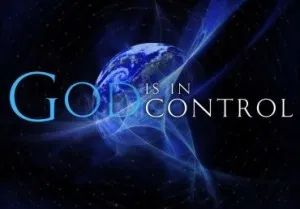
Reading 2
Some philosophers [Open Theists] have held that a satisfactory free-will theodicy cannot be developed if we claim God is timeless. Rather, they maintain, God has to be seen as a typical temporal agent, who strives to achieve his objectives within a framework of opportunities defined by the actions of other agents who, like him, are free. He is, of course, immensely powerful and wise, but like us he must await the actions of free beings other than himself in order to know with certainty what they will be, and adjust his own behavior in response. And much that those agents do, most especially their sinful decisions and willings, will not be what God would choose. Not that he is completely in the dark: with experience he may be able to develop probabilistic knowledge of how his creatures will act, and contrive to place them in circumstances designed to elicit if possible whatever behavior will achieve the most good. Moreover, God still has the power to motivate and punish, so his creatures may be guided toward right paths. But on this scenario God’s aims as creator can only be achieved – assuming they will be achieved at all – by taking risks. Inevitably, creaturely free will makes for a setting of uncertainty, and only within that setting can God attempt to bring creation to a happy outcome. Yet he proceeds, and his doing so is a measure of his love for us. [c.f. William Hasker]
This approach to providence, sometimes called the Openness view, has appealed to philosophers who find the God of perfect being theology too remote and mysterious to equate with the God of scripture and traditional belief. And like any theory according to which God is temporal, it brings with it the difficulty of rendering him subject to the limitations of time. But it also faces serious problems as an account of providence – substantially the same ones, in fact, that afflict Boethian theodicy: it too introduces passivity into the divine nature. And again, it is hard to see how this view would allow the actions of free creatures to be the subject of successful prophecy. [c.f. Thomas Flint] The Openness account does improve God’s position on this score, since as a temporal being he may at times be able to delay committing himself until he has seen the character of the agents in question develop somewhat. But that is no guarantee, and God’s prophecies are supposed to be safe from error. Also, there will still be many cases where numerous free actions impinge on some outcome God desires. When that is so, the probabilities of those actions must be multiplied to determine God’s assurance of the outcome, which as a result could be minuscule. But the biggest problem with the Openness view is that it makes the dimension of the creative enterprise that is most central to the free-will defense – that of creatures being led to fellowship with their maker – one in which, as creator, God’s “fate” lies almost completely in the hands of his creatures. No matter how concerned and loving he may be, no matter how powerfully he may attempt to win us over, we are on this view out of God’s control. Thus there is always the chance, however remote, that his plans for us will be utterly dashed, that his overtures to us will be rejected – even to the point, one supposes, of our all being lost – that as technology advances we will use our freedom to wreak ever greater horror, and that when it comes to finding friends, creation will for God turn out to be a complete disaster. Willingness to take chances may be laudable in some cases, but to entrust an enterprise of this importance to the beneficence of our tribe must surely be deemed irresponsible. Moreover, it is completely out of keeping with scripture and tradition, both of which portray God as above the fray of the world, unperturbed by its mishaps, and governing its course with complete power and assurance.
We must hasten to add that the Boethian God is in even worse shape here. For him the risk is still greater, since he is powerless to respond at all to creaturely action; he cannot in any way adjust our circumstances or introduce new incentives that may lead the wayward to repentance. Still, the Boethian and Openness views are in fundamentally the same camp: both make divine governance a hit-or-miss affair, in which we can only wait to see whether a more or less poorly informed God will manage to bootstrap his way to his objectives. Surely this gives away too much of the traditional notion of providence, and the reason in both cases is the same. It is not a matter of whether God is temporal; rather, the problem is that neither the Boethian nor the Openness view allows God to approach the work of creation with enough knowledge about how rational creatures are going to behave to secure any certain outcome. Thus, since it seems clear that some possible outcomes would be decisively bad, neither view assures God the ability to exercise adequate providence over the world. Even if they did, furthermore, neither account is likely to satisfy the anti-theist, for on both of them God is in some way diminished in both knowledge and control over the world.
Related Post
Concise Theological Critique of Open Theism
Open Theism Risky Providence is More Blameworthy than Classical Theism Risk-Free Providence
Source:
Hugh J. McCann, Creation and the Sovereignty of God (Indiana UP, 2012), pp. 82-83.